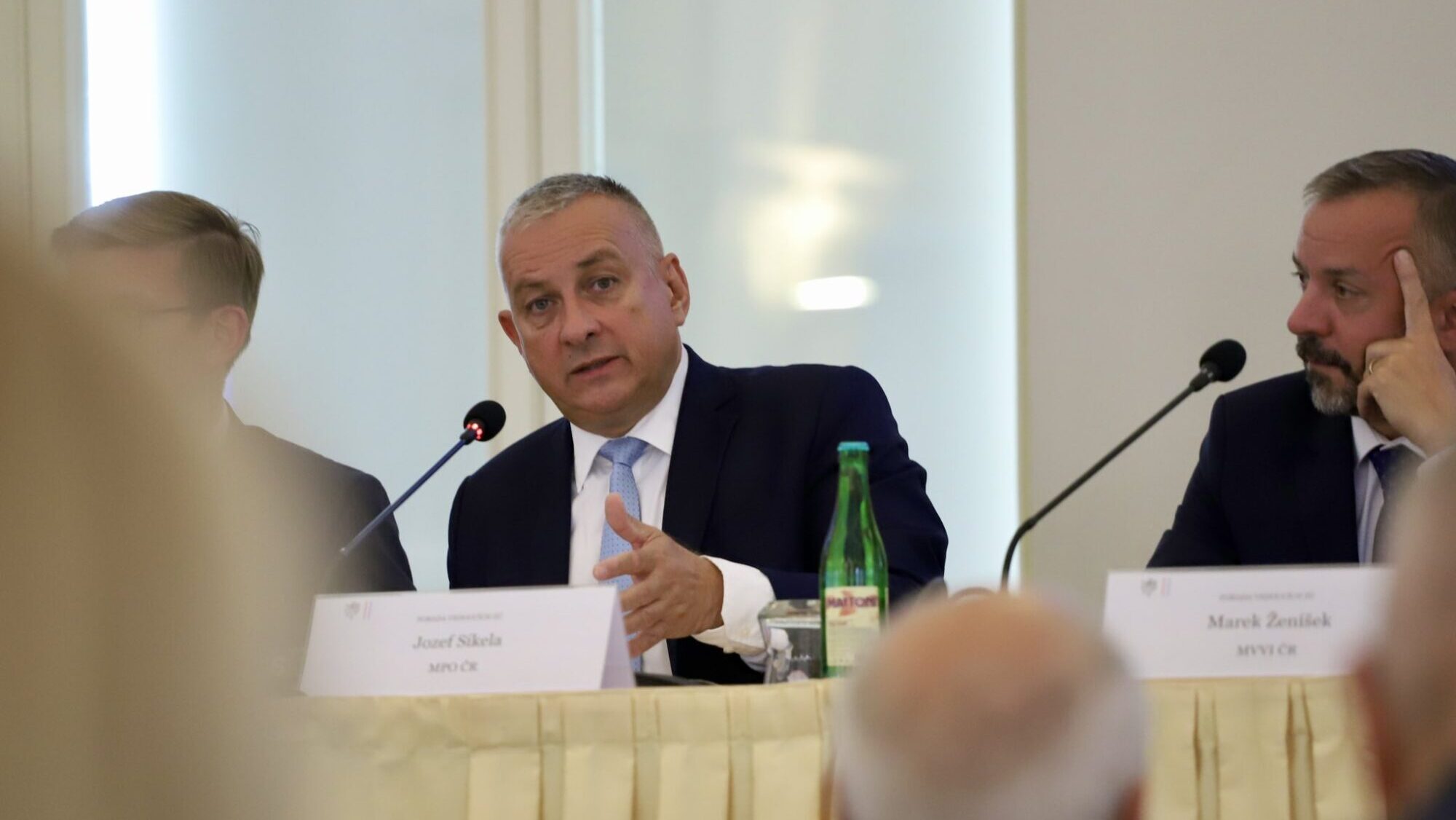
Jozef Síkela / Facebook, August 27th
Photo: Jozef Síkela on Facebook, 27 August 2024
Jozef Síkela, Czech trade minister and Prague’s candidate for the incoming EU Commission has urged neighboring countries Austria, Slovakia, and Hungary not to seek renewal of their Russian gas imports at the beginning of next year when the Moscow-Kyiv transit agreement expires.
Síkela, who is set to replace incumbent Energy Commissioner Kardi Simson, sent letters to Vienna, Bratislava, Budapest, and Germany, as well as to Simson, asking her to intensify EU-wide efforts to completely replace Russian gas—at a great cost to them, while profiting the Czechs.
“Russia repeatedly demonstrated that it is an unreliable trading partner willing to use energy supplies as a weapon to disrupt and destabilize our energy market and the entire economy,” Síkela said in a statement on Thursday, September 5th. “It is clear that nothing will change for the duration of its aggression against Ukraine.”
Instead, Síkela suggested using “alternative suppliers”—which mostly means the United States—and said that liquified natural gas (LNG) imports would be the most suitable replacement, despite it costing six to eight times as much as Russian pipeline gas.
The minister also offered his country’s pipeline infrastructure to transport foreign LNG from Germany to Central Europe, claiming that Czechia has the capacity to deliver the same amount as the entirety of the 40-42 million cubic meters that flow through Ukraine daily. It goes without saying that Prague would also be entitled to the same or even higher transit fees than Ukraine currently makes by letting Russian gas flow through its territory.
The transit agreement between Kyiv and Russia’s state-owned Gazprom that allows the company to use Ukraine’s pipeline network to deliver gas to Central Europe is set to expire on January 1st, and President Zelensky has repeatedly stated he would not extend it despite pleas from Central Europe and would only reconsider for “other companies” once Ukraine becomes a full member of the European Union.
However, Ukrainian officials also said they were looking into alternative solutions, one of which is transporting Azerbaijani gas to Europe throughout the same network. But since that gas would first have to travel through Russia, Síkela encouraged the EU and neighboring countries to drop that idea as well.
“We need to avoid a situation when we purchase gas that is formally non-Russian, but which could be swapped for Russian gas en route, undermining our efforts to reduce dependency on Russian supplies,” he said.
He added in his statement that even though the EU made “substantial progress” in reducing dependence on Russian gas—total EU imports are down to 8% from more than 40% before the war—he urged Simson and fellow ministers that they must further “intensify” their efforts.
While Hungary is the one member state that is constantly singled out in the EU for continuing to purchase Russian gas, the fact that Slovakia and Austria are just as much dependent on it is often overlooked, with the latter importing a record 98% of its gas supply from Russia in December last year.
What’s more, Síkela conveniently left out Russian oil imports, as Czechia was one of the three countries (along with Slovakia and Hungary) to negotiate an opt-out under the EU-wide Russian oil embargo following the invasion of Ukraine and continues to buy to this date.
Síkela’s lobbying, it seems, is another classic case of masking opportunism with virtue at the expense of others, something that he would undoubtedly continue if given the energy portfolio in the next EU Commission.
